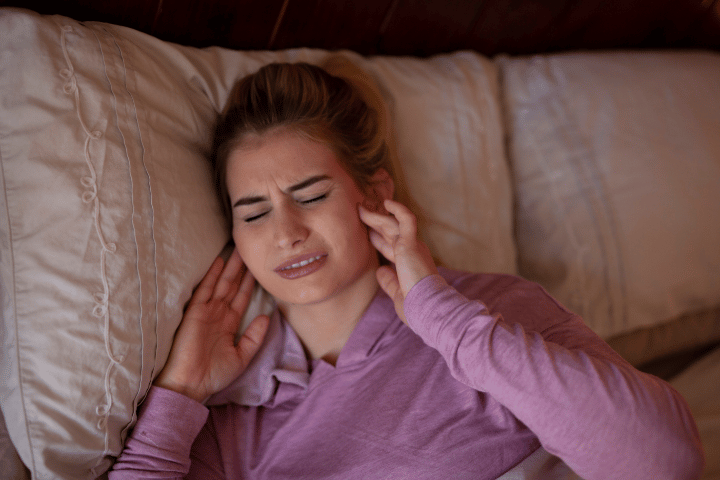
Introduction:
Achieving a straight, beautiful smile is a desire shared by many. In the past, traditional braces were the go-to option for correcting dental misalignments. However, advancements in orthodontic treatments have introduced a more discreet and convenient alternative: clear aligners.
Clear aligners offer a revolutionary way to straighten teeth without the need for wires and brackets. But what about individuals who suffer from bruxism, the habit of grinding or clenching their teeth? Can clear aligners effectively address teeth grinding and alignment? Let's explore this intriguing topic further.
Understanding Clear Aligners
Clear aligners, also known as invisible aligners, are custom-made, transparent trays that fit over the teeth. These aligners gradually shift the teeth into their desired position, resulting in a properly aligned smile. The aligners are made from a smooth, BPA-free plastic material, making them comfortable to wear and virtually invisible.
Addressing Teeth Grinding (Bruxism)
Bruxism is a condition characterized by the grinding, clenching, or gnashing of teeth, often occurring unconsciously during sleep. This habit can lead to various dental problems, including tooth sensitivity, enamel erosion, jaw pain, headaches, and even cracked teeth. Concerns arise when individuals with bruxism consider orthodontic treatments such as clear aligners. Will the aligners withstand the pressure exerted during teeth grinding?
The Effectiveness of Clear Aligners for Bruxism
Material Durability
Clear aligners are made from a sturdy and resilient plastic material, designed to withstand the forces exerted during normal chewing and speaking. While aligners are not specifically created to combat bruxism, they can still hold up reasonably well. However, in cases of severe bruxism, additional precautions may be necessary to protect both the aligners and the teeth.
Nighttime Protection
One solution for individuals with bruxism is the use of a night guard in conjunction with clear aligners. A night guard is a custom-fitted device that acts as a cushion, preventing the upper and lower teeth from grinding against each other. By wearing a night guard during sleep, the forces exerted by bruxism are absorbed by the guard, reducing the risk of damage to both the aligners and the teeth.
Regular Monitoring
Individuals with bruxism must communicate their condition to their orthodontist. Regular check-ups and monitoring allow the orthodontist to evaluate the progress of the aligner treatment and make any necessary adjustments. By closely monitoring the patient's dental health, any signs of excessive wear or damage can be detected early on, ensuring the effectiveness of the treatment.
Alignment Benefits of Clear Aligners
Aside from addressing bruxism concerns, clear aligners offer numerous advantages when it comes to dental alignment:
Aesthetics
Clear aligners are virtually invisible, allowing individuals to straighten their teeth without feeling self-conscious about their appearance. Unlike traditional braces, which are noticeable and often result in a metal mouth, clear aligners provide a discreet way to achieve a beautiful smile.
Comfort and Convenience
Clear aligners are custom-made to fit the individual's teeth precisely, ensuring a comfortable wearing experience. Unlike braces, which can cause irritation and soreness due to wires and brackets, aligners have smooth edges and are easily removable, allowing easy cleaning and maintenance.
Improved Oral Hygiene
Clear aligners hold the advantage of being removable. This feature allows individuals to maintain optimal oral hygiene by easily brushing and flossing their teeth without any obstructions. With traditional braces, cleaning can be more challenging, leading to a higher risk of tooth decay and gum problems.
Clear Aligners as a Viable Option for Bruxism and Teeth Alignment
Clear aligners offer a promising solution for individuals seeking to align their teeth discreetly and comfortably. While they may not be specifically designed to address bruxism, clear aligners can still withstand the pressures exerted during teeth grinding to a reasonable extent. By incorporating additional measures such as wearing a night guard and regular monitoring by the orthodontist, individuals with bruxism can enjoy the benefits of clear aligners while protecting their teeth and aligner trays.
Clear aligners present a viable option for individuals with bruxism who desire to straighten their teeth. So, if you're considering aligning your teeth and struggle with bruxism, don't let it deter you from exploring the possibility of clear aligners. Consult with your orthodontist to determine the best course of action and embark on your journey toward a straighter, healthier smile.
FAQs
Yes, you can wear clear aligners even if you have bruxism. However, it's important to inform your orthodontist so they can provide you with proper guidance and potentially recommend additional measures to protect your aligners.
Clear aligners are not known to aggravate bruxism. In fact, some aligner systems, like Invisalign, can help reduce the effects of teeth grinding by providing a protective barrier between your upper and lower teeth.
Clear aligners can effectively correct teeth misalignment caused by various factors, including bruxism. However, the severity of misalignment and underlying issues will determine the suitability of aligners in your specific case.
To protect your clear aligners from bruxism-related damage, your orthodontist may suggest using a nighttime mouthguard. This mouthguard acts as a cushion, reducing the impact of teeth grinding and protecting both your teeth and aligners.
Bruxism itself does not significantly affect the effectiveness of clear aligner treatment. However, excessive teeth grinding can potentially cause damage to your aligners or teeth, which may require adjustments or replacements. Regular communication with your orthodontist is important to address any concerns or issues throughout your treatment.



 Australia
Australia New Zealand
New Zealand Malaysia
Malaysia English
English Portuguese
Portuguese English
English English
English English
English English
English English
English Canada
Canada